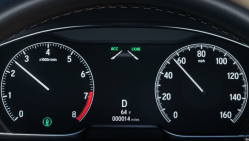
— A Honda Sensing lawsuit allegedly should be dismissed after the plaintiffs alleged their 2017-2020 Honda CR-V and 2016-2020 Honda Accord vehicles had radar problems.
Some owners said they were so afraid of the Honda Sensing systems they stopped driving their CR-Vs and rented different vehicles.
According to the Honda Sensing lawsuit, the systems are marketed as a suite of features to help drivers avoid collisions.
Those features include Collision Mitigation Braking, Road Departure Mitigation, Adaptive Cruise Control with Low-Speed Follow and Lane Keeping Assist.
The Honda Sensing lawsuit began as a case about 2017 CR-Vs, but several additional class actions were filed and consolidated into a lawsuit that includes 2017-2020 Honda CR-Vs and 2016-2020 Honda Accords.
Honda drivers claim warning messages appear for no reason and the vehicles suddenly change speeds when driving with cruise control activated. Warnings also tell drivers to apply the brakes even though there are no forward objects in the road.
The Honda Sensing class action lawsuit alleges the problems are caused by the millimeter wave radar software. The lawsuit alleges technical service bulletin 17-064 supports the claim of radar problems because Honda told dealerships to update the radar software if owners complained about the Sensing systems.
However, some drivers claim Honda dealers sometimes refuse to perform repairs even though there are problems with the wave radar software.
The plaintiffs claim Honda either should not have sold or leased the vehicles, or it should have "prominently disclosed—both in a written disclosure to be acknowledged in writing by Plaintiffs and class members and through an oral disclosure to be given by Honda’s authorized dealerships—that the vehicles’ autonomous braking systems are defective and may malfunction including by abruptly braking when there is otherwise no risk of a collision."
Motion to Dismiss the Honda Sensing Lawsuit
Honda filed a motion to dismiss the Sensing lawsuit by telling the judge that owners don't plausibly allege a defect and fail to allege an alternative design to the features of the Sensing systems.
The automaker also argues various claims are barred by a lack of privity between the plaintiffs and Honda, and certain plaintiffs allegedly didn't provide pre-lawsuit notice to Honda.
Attorneys for Honda also argue certain claims are also barred because the plaintiffs fail to allege they have no adequate remedy at law, while certain state-law claims seek remedies that aren't available.
In addition, all claims under Massachusetts law should be dismissed because the plaintiff doesn't allege his vehicle failed to meet government standards.
The Honda Sensing lawsuit was filed in the U.S. District Court for the Central District of California - Cadena, et al., v. American Honda Motor Co., Inc.
Te plaintiffs are represented by Gibbs Law Group LLP, and Greenstone Law APC.




